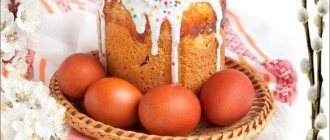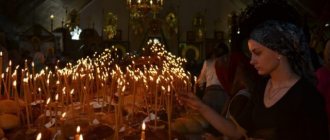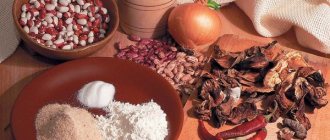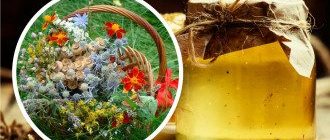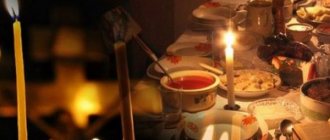The date of Easter celebration changes every year, but Orthodox Christians probably know what date they celebrate Maslenitsa, Easter, Palm and Forgiveness Sunday in 2022. After the Nativity of Christ and Christmastide, we begin to prepare for the onset of Lent. For four weeks, sermons will be heard in churches about the famous parables of Christ: the publican and the Pharisee, the prodigal son, and the Last Judgment. This reminds us that we are all on earth only guests, and our whole life is the path to the Kingdom of Heaven.
Lent is considered the most important season for the Russian Orthodox Church. This is the longest period for which believers limit themselves to food and lead a very special lifestyle.
The Holy Resurrection of Christ is celebrated in the spring - from year to year, the day of celebration is calculated according to a special church calendar.
Maslenitsa, Lent and Easter: what date in 2022?
In spring, many Orthodox and pagan holidays are celebrated - Easter, Maslenitsa, the beginning of Lent, Forgiveness Sunday, etc.
Maslenitsa is celebrated 56 days before Easter. In 2022, Maslenitsa will be held from February 28 to March 6.
Maslenitsa is specially celebrated a week before Lent in order to have time to have fun and prepare those dishes that will then be banned for more than a month.
Maslenitsa is a kind of boundary between winter and spring. On this day, a straw effigy of Maslenitsa is burned, calling for spring.
Maslenitsa is a pagan holiday, but it has been celebrated since ancient times. People of different classes and ages go out into the street, treat themselves to pancakes, say goodbye to winter and welcome spring.
Traditionally, Maslenitsa is celebrated for a whole week - from Monday to Sunday. Immediately after Maslenitsa, Lent begins, which lasts 7 weeks.
Easter week traditions and rituals
According to tradition, girls, dressed in their best outfits, competed in dexterity, knocking down wooden figures with a long painted stick. This was carried out so that the guys could choose the most dexterous and agile wife.
Rituals and traditions differed depending on the village where the post-Easter week was spent:
- Monday in some regions is called Doused Monday: on this day, girls are doused with cold water from a bucket.
- All week a certain man spent the whole week performing volochebnye chants (from the word “to drag”): he walked around the village and sang chants. It was believed that this would make the harvest more saturated.
- On Tuesday, there was a ritual of pouring ice water over those who slept through matins (a prayer performed early in the morning).
- The girls gathered in the church square to show off their clothes, and then rode horses around the village.
- Men and women searched for Ryasta (Corydalis) flowers, trampled them, repeating: “So that we can wait for the Rassa to trample next year.”
- On the first Wednesday after Easter, people walked around the fields with a loud candle - this protected the crops from summer hail.
- Starting from the fourth day, bridesmaids were held - young men free from the bonds of marriage looked for a bride.
- On Thursday, they performed the “driving of the mare” ritual: they attached a makeshift head to a stick, tied the tail and covered it with a cloth. Those who wanted to participate sat on top of the improvised horse. One of the villagers dressed up as a gypsy and walked his horse around the yards. When the “mare” fell, the gypsy “gnawed” her ear, and she got up
On a note! Girls washed their faces with cold water on Friday, a process that helped them stay healthier all year, according to folk stories.
One of the popular games was egg rolling. Near the low slide, the eggs of those wishing to participate were stacked in a semicircle. After which one of those who takes part rolls his own on top, trying to knock down the maximum number of strangers. He keeps the knocked-down trophies for himself; if he doesn’t knock down anything, he loses his. Everyone painted their props as brightly and unusually as possible to make it easier to determine where whose was. This game has existed since pagan times and was intended to awaken the forces of the earth and ensure a good harvest.
Lent in 2022: from what date to what date
Based on the dates of Maslenitsa and Easter, you can determine the start and end dates of Lent. The day after the end of Maslenitsa week, Lent begins, which lasts 40 days. And it ends with Easter.
Since Easter falls on Sunday 24 April in 2022, Lent will last from Monday 7 March to Saturday 23 April. Taking these dates into account, Maslenitsa week will begin on Monday, February 28, and end on Sunday, March 6.
Lent is the strictest fast observed by Orthodox Christians. It consists of Lent - 40 days - and Holy Week - the week before Easter itself.
The strict weeks of Lent are the first and last weeks:
- March 7-14, 2022 - the first week of Lent.
- April 16-23, 2022 - Holy (last) week of Lent.
The basic rules of Lent are abstinence from foods containing animal fats (meat and processed foods), dairy products, eggs, and alcohol.
On Mondays, Wednesdays and Fridays you cannot eat foods that have been thermally processed. Hot meals are allowed on Tuesdays and Thursdays. Fish is allowed to be eaten for only 2 days during Lent - on the feast of the Annunciation of the Blessed Virgin Mary and on Palm Sunday.
Immediately after Lent, Orthodox Christians celebrate Easter.
Main rituals for Easter
The most striking symbol of Easter is a painted egg, sometimes it is painted with patterns or decorated with special stickers. In Christianity, dyes symbolize victory over death. Most often they are painted red, which reminds us that Christ shed his blood for the salvation of the human race. They were necessarily taken to the temple to be blessed and eaten first of all at the morning meal.
Another ritual of Easter was washing with holy water. Gold and silver jewelry and painted eggs were placed in it. It was believed that such actions would bring health, luck and wealth in the coming year. Mothers used eggs painted red to perform a ritual of protection for their children. They rolled the egg on the child's hands and face.
Another interesting Easter tradition was observed by musicians and singers. They went out into the street, gathered in groups and sang special songs as they walked along the street. With them they wished the local residents the blessings of life and a good harvest in the coming year. In response, people brought them cooked food. Such an exchange promised prosperity for the entire coming year and protection from harm. Some girls used Easter omens to get married.
Palm Sunday in 2022: what date?
Palm Sunday will be celebrated on April 17 in 2022.
Palm Sunday is celebrated a week before Easter, meaning the date may change every year. In 2022, this day falls on April 17th.
The holiday is dedicated to the solemn appearance of Jesus Christ in Jerusalem. On this day, it is customary to go to church and bless palm branches. They symbolize the palm branches with which the Jews greeted Jesus in Jerusalem. Palm trees do not grow in the central part of Russia, so it is customary to consecrate palm branches as the first plant that blooms in the spring.
Few people know, but there is a rule - the number of willow branches should correspond to the number of people in the family.
What date is Easter celebrated in 2022?
In 2022, Orthodox Christians celebrate Easter on Sunday, April 24.
On the night of Easter, festive services begin in all churches. The priests make a religious procession around churches and temples to the sound of bells, and the sacrament ends with the blessing of Easter cakes and Easter treats.
They prepare for the holiday in advance - they clean the house, paint eggs and bake Easter cakes.
Pouch. 5th. Second day of Easter.
Christ is Risen!
I. How best should we celebrate Easter? – Easter should be celebrated in such a way as to please the risen Lord with this celebration.
Celebrate it not in kvass,
as the ap. teaches
Paul, not in the leaven of malice and wickedness, but in the absence of leaven of purity and truth: for our Passover was devoured for us by Christ
(1 Cor. 5:7.8).
II. Giving advice on how Christians should celebrate their Easter, the apostle had in mind the Jewish Passover. During the celebration of their Passover, the Lord commanded the Jews to beware of everything leavened (Ex. 12:15); and the apostle advises Christians to observe lack of leaven. The Jew wasware of material kvass, but the Christian must beware of spiritual kvass - malice and deceit. During the Passover, the Jew ate unleavened bread, which was only a symbol of purity, but a Christian must have the very purity of spirituality.
a) The Apostle demands that those celebrating Easter have no malice.
And why would she be here?
Didn’t Christ die for everyone, and didn’t He rise again for everyone? He died and rose again for everyone, and we will not be able, for His sake, to endure any insult? What kind of followers are we? If someone had offended us with the most cruel offense, then we must forgive him now, for the sake of the Risen One. With such joy, there is no time to consider grievances. The risen Christ sought forgiveness for all of us; Should we, those who have been pardoned, continue our malice? Should debts be considered forgiven? Come to your enemy and tell him: Christ is risen,
and demand from him peace and love:
let us embrace each other, and forgive those who hate us all through the resurrection.
b) The requirement of St. Paul further is that those celebrating Easter should not have guile.
It is never proper for Christians;
for why should they deceive those who must all be brethren, all created in Christ for the truth, for whom the truth is as necessary as air? Moreover, in these days it is not proper for a Christian to have the slightest appearance of wickedness. For what does he now say to others, and what does he hear from others when he meets them? He says: Christ is risen!
He hears:
He is truly risen!
That is, we all, Christians, are now becoming witnesses and evangelists of the truth of the resurrection of Christ. Especially now we need to love all truth, and remove from ourselves every form of double-mindedness: insincerity, cunning and deceit, in order to become worthy witnesses of the truth of the resurrection of Christ.
c) Finally, the apostle demands purity and truth for a worthy celebration of Easter.
Every holiday loves cleanliness, as a result of which we clean our houses and clothes for the holidays, and wash ourselves. But the Risen One needs more than just this purity. He is ready to receive us in rags; I am ready to seat the naked at table with Him, as long as the soul is pure and clothed in the robe of innocence. And on the contrary, worn-out lips are disgusting to Him when lies and impurity of heart are grafted onto them: and light clothing is worse for Him than sackcloth, when passions are hidden under it, when it is bought by oppressing others. Therefore, when celebrating Easter, one must take care not only about the cleanliness of houses and clothes, but more about the purity of the soul and heart. Without this purity, with what face will we dare to come to church to glorify the risen Lord?
III. How far are our Easter celebrations from the true celebration required by the Apostle! You know, brothers, the customs of the world these days, the events that fill them, the activities in which they take place. With the end of Lent, all good things seem to end for many; Christ rises, and they die in spirit! And for people with a Christian feeling these days it is difficult to look at the crazy games, at the oblivion by many of all abstinence, at the obvious triumph of unclean passions: what must it be like for the risen Lord, the One who died for us for this purpose, to make all us pure and holy people?
Let us try to hold a real holiday, as the apostle advises, and not as flesh and blood demands, that is, not in the leaven of malice and wickedness, but in the absence of leaven of purity and truth.
Let us also remember the words of the Lord Himself in the Old Testament about this day:
“Be patient with Me,
” says the Lord,
on the day of My resurrection, for My testimony
(Zeph. 3:8).
It’s as if the risen Lord God says this: “Christian! bear with Me, do not persecute Me with your disorderly, indecent life, although now - on the day of My resurrection - on the day on which I defeated death with My resurrection and resurrected you with Me, who died in Adam - the day on which I destroyed hell with with all its horrors, I defeated the devil, your ever-evil enemy, and opened for you the doors of paradise, once closed for you by the fall of your ancestor - the day on which I lifted the curse of My heavenly Father that weighed on you and made you son of Him.
Be patient with Me on the day of My resurrection,
says the Lord;
Why are you patient? for My testimony
, i.e. with your life, with your behavior, completely consistent with My teaching, testify, Christian, before the whole world, before all My many enemies, that I am the Savior of the world, promised by the prophets, that I taught you how to live, and gave you strength in the Holy Spirit carry out my teaching.
Therefore, by a good life we will prove to all His enemies that Christ, our joy, has risen and we are saved. Let us glorify Him in all our bodies and in our souls. And You, merciful Lord, make us worthy to glorify You with a pure heart! (Compiled from Prop. Innocent, Archbishop Hers, vol. IV and other sources).
Is it possible to work in the garden after Easter?
There are two opposing opinions and quite convincing arguments are presented on each side. Let's figure out whether it is possible to dig a garden after Easter, and consider both opinions:
Modern summer residents rarely pay attention to such issues, because time passes and the garden requires constant attention. Adherents of the affirmative opinion give quite logical arguments regarding the question of whether it is possible to work in the garden after Easter. Firstly, there is no source where the ban on working with land is clearly stated. In addition, there are certain deadlines for cultivating the land and planting, applying fertilizers and pruning the garden. Another argument in favor of an affirmative answer to the question of whether it is possible to garden after Easter, and it concerns the attitude towards work as such. If it is simply not possible to leave your plot unattended for such a long time, you can always work on the land with prayer in your soul and a request for a good harvest.
Historical summary
Many are sure that the bright holiday of Easter appeared only about two thousand years ago, when the death of Jesus Christ was recorded. But this is not entirely true; initially Passover was, and still is, for the Jewish people, as a symbol of liberation from Egyptian slavery. The protagonist was Moses, who led the Jews through the opening waters and freed them.
Considering that Jesus was a Jew, he also celebrated this holiday, but after his death and then resurrection, Easter became the main celebration celebrated in honor of the rebirth of Christ. It turns out that Easter is celebrated in almost half of the countries in the world, but each for their own reason.
Signs from drawings on eggs
The most important ritual before Easter is coloring eggs. Of course, the easiest way is to paint them using a special paint in which the eggs are dipped for a few minutes. But you can get creative with this process.
You can stick pictures on the shell or even apply patterns or symbolic patterns yourself. Certain symbols carry specific meanings.
What images can be applied to eggs:
- in order to make one’s health strong, they draw a pine tree;
- The image of a tree, preferably an oak, allows you to restore both spiritual and physical strength;
- the drawn grid represented fate;
- the yellow mesh attracted good luck and was associated with the warmth of the sun;
- an egg decorated with dots symbolized prosperity;
- the image of a berry personified family values and readiness for motherhood;
- You can show integrity and spiritual purity by drawing any flower.
You can do it differently and paint the egg any color and draw exactly the symbol or design that you think brings you happiness. The most important thing is to sincerely believe that the drawn symbol has magical properties.


